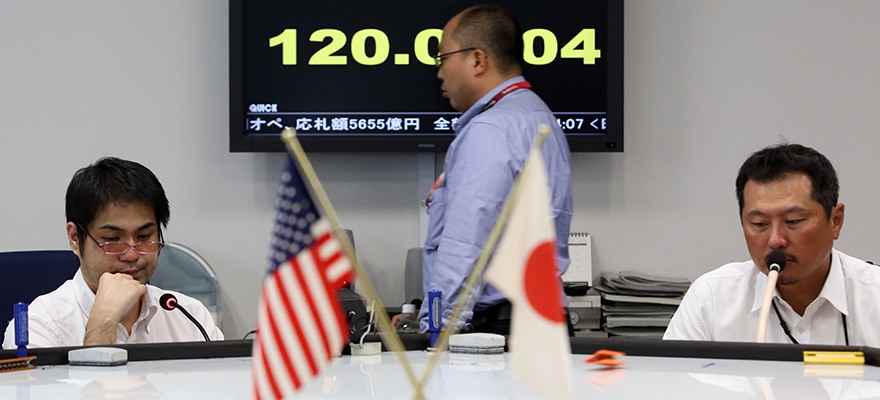Japanese yen traders have been hit massively by a raft of Volatility as the Bank of Japan is rumored to be ‘checking’ rates. While the European banking sector turmoil is driving local indices to new lows, the ongoing raft of volatility may be a key metric that increases brokerage revenues in the first quarter of 2016.
Traders of the Japanese yen have been hit massively by a violent decline in the USD/JPY and the rest of the JPY crosses, as the currency markets are adjusting to tightening Liquidity conditions. While volatility is welcomed in the immediate future, not all brokerages are considering the latest batch to be healthy for business.
For a broker, volatility is a double-edged sword
The co-founder of DARWINEX Juan Colon stated to Finance Magnates: “For a broker, volatility is a double-edged sword. On the negative side, leveraged customers are margined-out of positions and high mortality ensues. On the plus side, trading volumes increase and our best DARWINs (trader based ETFs) are making a killing.”
After yesterday when the chairman of the U.S. Federal Reserve Janet Yellen almost invited market turmoil by saying that the Federal Reserve is looking at the markets and the U.S. dollar when taking monetary policy decisions, volumes are skyrocketing across all trading venues in recent days.
The founder and CEO of RoarForex Joshua Dentrinos elaborated: “Volatility has been a fantastic boost to our business as volumes are growing steadily. When you operate an STP/ECN business model the extra revenue is always welcome. Our customers are also very happy with the volatility as we are tailored to fund managers and robotic traders.”
Counterparty Risks & Bank of Japan Intervention
A little over a year after the massive rally of the Swiss franc we are seeing the Japanese yen moving sharply higher against all of its major counterparts, prompting concerns from the central bank about the exchange rate.
Speaking to Finance Magnates, the CEO of Divisa Capital Mushegh Tovmasyan elaborated: “These bursts of volatility have translated into more volumes across the board dominated by oil and gold. We are also starting to notice counterparty risk becoming a hot topic as banks around the world feel the pressures of the stock market rout against financials.”
We are starting to notice counterparty risk becoming a hot topic
The European banking sector jitters may trickle down to some foreign exchange brokers due to the market turmoil. While the CEO of Deutsche Bank and the German Finance Minister Wolfgang Scheuble are rushing to reassure markets, financial counterpart risks are rising.
“Top banks in US and Europe have lost over 20% of their value while Russia continues to shut down domestic banks. In our FX brokerage sector, volatility has many brokers on high alert as they face similar dangers as to what occurred during SNB intervention a year ago with retail clients punting the markets leveraged to their nose,” added Tovmasyan.
First signs of any Japanese intervention as #USDJPY soars 250 pips in 1 minute #forex pic.twitter.com/OkvtBiTOMd
— Ashraf Laidi (@alaidi) February 11, 2016
The Bank of Japan has been rumored to be intervening in the currency markets by selling the Japanese currency. While the step is welcomed by the markets as a way to reduce the extent of excessive market moves, traders are divided in their opinions as usual.
BoJ gives to all traders who were late to short #USDJPY one more chance to earn cash. Magic fairy from Tokyo pic.twitter.com/E6v6k4k7EJ — Russian Market (@russian_market) February 11, 2016
While some are seeing the intervention as a better entry level to go long on the Japanese yen, others are less enthusiastic about selling the USD/JPY and the other yen crosses at present levels.
#USDJPY short traders. That is your first warning 2nd round wont be so tame
— Pete Armstrong (@PeteArmstrong) February 11, 2016
Inadvertently, Janet Yellen’s testimony in front of the House yesterday has prompted investors to test the resolve of monetary and fiscal authorities around the globe. As the market turmoil in Europe continues and worries about the solvency of a number of major banks prompt rising counterparty risks, a global liquidity freeze may be imminent should current market conditions persist.


















